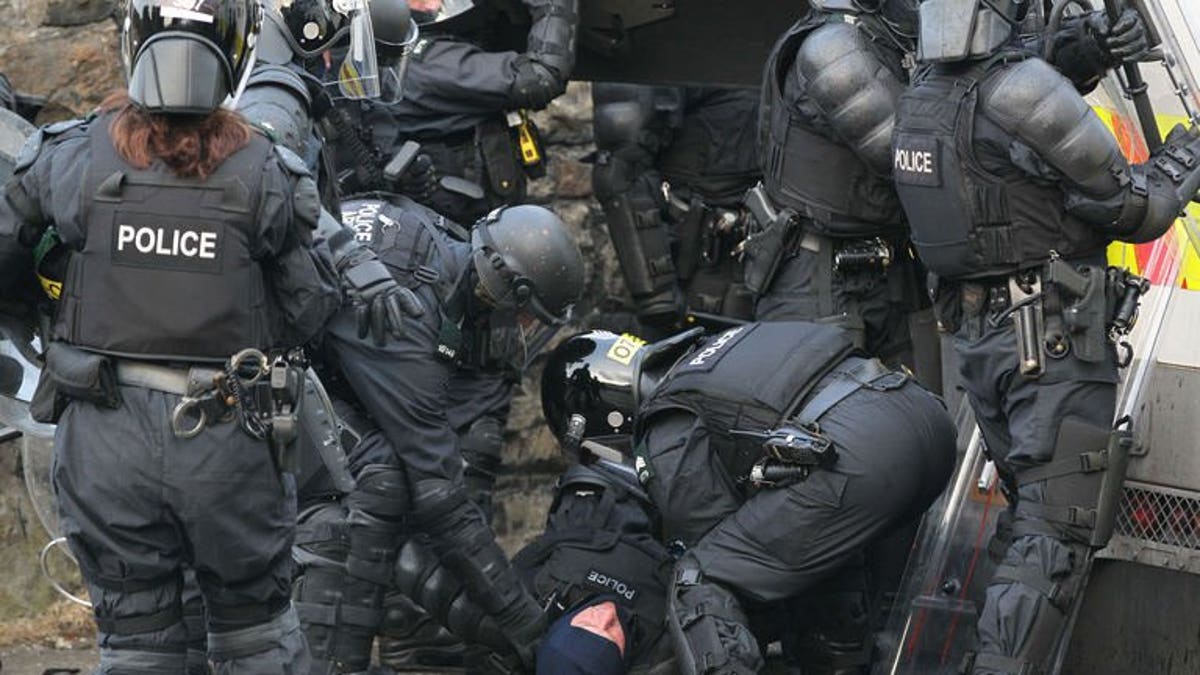
An injured policeman is carried away during clashes with Orangemen protesters in north Belfast, Northern Ireland, on July 12, 2013. Hundreds of extra police have been deployed to Northern Ireland following a night of rioting in Belfast that left 32 officers injured and a politician hospitalised. (AFP)
BELFAST, United Kingdom / Northern Ireland (AFP) – Hundreds of extra police were deployed to Northern Ireland on Saturday following a night of rioting in Belfast that left 32 officers injured and a politician hospitalised.
More than 600 police from other parts of Britain had been sent to the province in anticipation of tensions over the traditional Twelfth of July parades, the pinnacle of the Protestant Orange Order's marching season.
A police spokesman said a further 400 were due to arrive on Saturday following the riots, in which crowds attacked police with petrol bombs, sticks, fireworks, bricks, bottles, masonry and even a sword.
Trouble flared after police tried to enforce a decision by an adjudication body banning the Orange Order from marching through a Catholic republican area of Belfast.
"The scenes were both shameful and disgraceful," Chief Constable Matt Baggott of the Police Service of Northern Ireland (PSNI) told reporters.
He criticised leaders in the Orange Order who had called for protests against the decision to block their march through the republican Ardoyne area.
"Some of their language was emotive and having called thousands of people to protest they had no plan and no control," Baggott said.
"Rather than being responsible, I think the word for that is reckless."
The PSNI said 32 officers were injured in Friday night's violence, while leading Protestant politician Nigel Dodds was taken to hospital after being hit on the head with a brick.
Dodds, a member of the Democratic Unionist Party (DUP), was knocked unconcious as he tried to urge the rioters to calm down. He was discharged from hospital early on Saturday.
Northern Ireland First Minister Peter Robinson, the DUP leader who shares power in the government with the Catholic Sinn Fein, urged "cool heads to prevail at this time".
"Violence is undermining a just cause and runs totally against the wishes of the Orange Order for protest to be entirely peaceful," he said in a statement.
The July 12 parade marks the victory of Protestant king William III of Orange over the deposed Catholic king James II at the Battle of the Boyne in 1690.
It is a flashpoint for tensions between the Protestant and Catholic communities in the British-ruled province, which was devastated by three decades of sectarian violence in the 1970s, 1980s and 1990s.
The 1998 Good Friday peace accords largely brought an end to the unrest, known as The Troubles, although sporadic violence and bomb threats continue.
